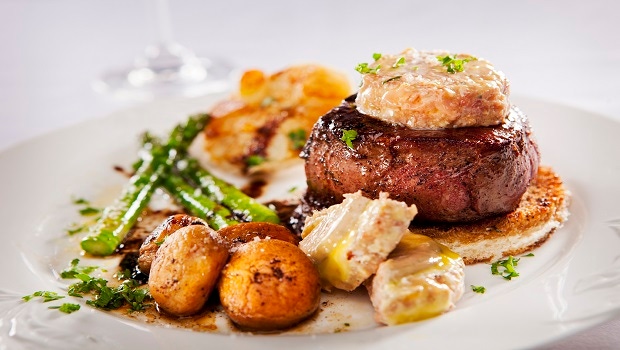Delicacy Foie Gras Back on Menu in California After Court Strikes Law
The Jan. 7, 2015 ruling represented a victory for restaurants that sold foie grass and a setback for animals-rights groups that claim the delicacy made from fattened duck liver is the result of an inhumane practice: force-feeding ducks.

A controversial delicacy is back on the menu in California, at least for the moment: foie gras.
Last week, a federal judge overturned Cal. Health & Safety Code § 25982. The state law banned the sale in California of products that come from “force feeding a bird for the purpose of enlarging the bird’s liver beyond normal size."
The Jan. 7, 2015 ruling represented a victory for restaurants that sold foie grass and a setback for animals-rights groups that claim the delicacy made from fattened duck liver is the result of an inhumane practice: force feeding ducks.
“CALI FOIE BAN OVERTURNED. GOOD THING I ALWAYS HAVE IT ANYWAY!!!," tweeted David Bazirgan, a San Francisco chef.
Farm Sanctuary, an animal protection organization, urged California Attorney General Kamala Harris to file an appeal with the U.S. Court of Appeals for the Ninth Circuit.
“Foie gras is French for ‘fatty liver,’ and ‘fathead’ is the American word for the shameless chefs who actually need a law to make them stop serving the swollen, near-bursting organ of a cruelly force-fed bird," said Ingrid Newkirk, president of the People for the Ethical Treatment of Animals, in a statement.
A California restaurant and other plaintiffs who challenged the law claimed they had lost millions in foie gras product sales and that district attorneys in three counties had threatened prosecution. U.S. District Judge Stephen Wilson sided with them, finding that the federal Poultry Products Inspection Act (PPIA) preempted the California law.
A related California law was not at issue in the case: Cal. Health & Safety Code § 25981, which bans force feeding a bird so its liver can be enlarged.
Wilson’s decision rested on 21 U.S.C. §467e, which prohibits states from imposing different marking, labeling, packaging or ingredient requirements than under the PPIA in relation to food that is prepared at an “official establishment".
“It is undisputed that the PPIA and its implementing regulations do not impose any requirement that foie gras be made with liver from non-force-fed birds. Thus, Plaintiffs’ foie gras products may comply with all federal requirements but still violate § 25982 because their products contain a particular constituent—force-fed bird’s liver," Wilson wrote, laying out his finding that the state law was preempted by the PPIA. “Accordingly, § 25982 imposes an ingredient requirement in addition to or different than the federal laws and regulations."
Farm Sanctuary contended the decision was erroneous. “Force feeding is clearly not an ingredient. It is a cruel farming practice, which is still banned in California and in more than a dozen other countries," said the organization, which is caring for some birds that were taken from a foie gras operation.
Following Wilson’s ruling, the Humane Society of the United States (HSUS) expressed confidence that the 9th Circuit would uphold the state law. It also said the decision doesn’t affect a California law (AB 1437) that requires shell eggs sold in the Golden State come from cage-free hens. The PPIA is inapplicable to hens that lay eggs, according to HSUS President Wayne Pacelle.
“A federal court has already dismissed a case brought by six state attorneys general challenging 1437, and directed that it cannot be refiled," Pacelle said in a statement.
About the Author(s)
You May Also Like






.png?width=800&auto=webp&quality=80&disable=upscale)